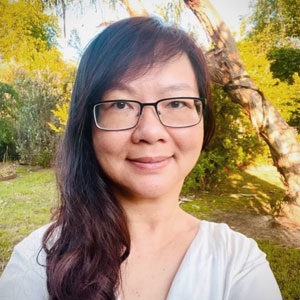A movie once told the story of how a man who completely lost his memory following a car accident. Nobody recognized him in the nearby town; he looked at his reflection in a shop window, and yet he could not recognize himself. Even the ticket in his pocket did not give him a clue. His confusion deepened when he found the inscription on the back of his watch said “with love.” Lost in a daze, he put his head in his hands and asked: “Who am I?”
This is a snippet of our human condition. “Who am I?” is a question that has indeed torn humanity since the time of exile from Eden. Self-reflection on one’s identity in the world has occupied the minds of philosophers and thinkers throughout the ages. While the quest for individual identity was explored by the Greek philosopher Socrates and the modern western existentialist Jean-Paul Sartre, Chinese traditions tend to focus on broader issues of social ethics and harmonious relationships with Heaven or the greater Dao. Chinese collective culture, in general, tends to ask: “Who are we?”
The German theologian Dietrich Bonhoeffer (1906-1945) once asked the question “Who Am I?” in the prison cell of a Nazi Concentration Camp. He concluded, “O God, I am thine!”—the epiphany of his search for identity was to totally belong to God.1 The apostle Paul exhorted the Church in Corinth: “Therefore, if anyone is in Christ, he is a new creation. The old has passed away; behold, the new has come.” (2 Cor 5:17). This new creation is rooted in Christ who shares all our human frailty and suffering, yet was raised to the highest place, so we may receive the indwelling Spirit as an eternal inheritance. Like the Trinity, we are made for relationships and conversations as imago Dei. We will never be a complete “I” without the Other—the Divine, other people, and the creation, as in Mark Burber’s I-Thou relational paradigm. What if our false selves, defined by families of origin, social status, and worldly accomplishment, are mere shadows and façades? What if our yearning for something more will never be settled till it meets the One who is after our heart of hearts?What if we are God’s beloved and always belong to the One who created and has been recreating us in Christ? What if a close-knit Christian community embraces and lives out its mysterious and holy nature, knowing to whom it truly belongs?
The poem “Who am I?” is an invitation for anyone on a journey searching for their individual and collective identity. We, who are like the man in the movie suffering from amnesia, may start to find our way back. Augustine once prayed: “Let me know Thee, Oh God, let me know myself, that is all!” The genuine self-interrogation of one’s identity may lead to the awareness and receptivity of the one who gives life and breathes over the beloved. It is indeed in the convergence and union with the holy God that we are found.
“Who Am I?”2
Who Am I?
who am I –
a mixture of clay and water
a moving image under a satellite
or scribbles on a poetic line?
am I what I do –
thoughts, sayings and actions
achievement, capacity and performance?
am I what I have –
home, dog, finances
books, families and friends?
am I what others think or say about me –
titles, status, talent,
impact, success and fame?
am I defined by
ethnicity, location and time?
am I explained by
my own understandings and feelings of self?
am I trapped by
mistakes and shame?
am I consumed by
productivity and perfectionism?
am I bound by
compulsion and self-rejection?
am I entangled by
voices and desires?
……
these are layers of façades of
who I am
the truth is
I am ‘the Beloved’
holy and mysterious
here and now
inhaling
cherishing
reverberating
in every cell of my being
let the Beloved
be loved
let who I am
be enfolded in I AM
then I may rise
to do, have and grasp
what I AM sees
hears
yearns
我是谁?
我是谁 –
粘土和水的抟作物
卫星下游动的图像
还是诗行间的涂鸦?
我是所呈现的 –
思想、言辞和行为
成就、 能力和表现吗?
我是所拥有的 –
家、 狗、 财富
书籍、至亲和朋友吗?
我是别人的描述或猜测 –
头衔、 地位、 才干
影响力、成功 和名声吗?
我是由种族、地点和时间
来定义吗?
由自我理解和自我感受
来解释吗?
我是否被错误和羞耻
而困住?
是否被生产力和完美主义
而消耗?
我是否被冲动和自我拒绝
所捆绑?
是否被声名和欲望
所缠绕?
……
这些都是真我之外的
一层层表象
事实上
我是那“至爱的”
圣洁又神秘
此时此地
让生命的每个细胞
吸入
珍惜
回荡
让至爱的
被爱
让我是谁
被“我是”所怀抱
然后我会起来
去做、去拥有、去把握
“我是”所看到
听到
和渴望的
©Xiaoli Yang. All rights reserved.
Endnotes
Photo by Jessica Wong on Unsplash

Xiaoli Yang
Rev. Dr. Xiaoli Yang is an Australian Chinese theologian, pastor, poet, and spiritual director. She is currently serving Australian Association of Mission Studies and on the editorial board of Australian Journal of Mission Studies. View Full Bio
Are you enjoying a cup of good coffee or fragrant tea while reading the latest ChinaSource post? Consider donating the cost of that “cuppa” to support our content so we can continue to serve you with the latest on Christianity in China.